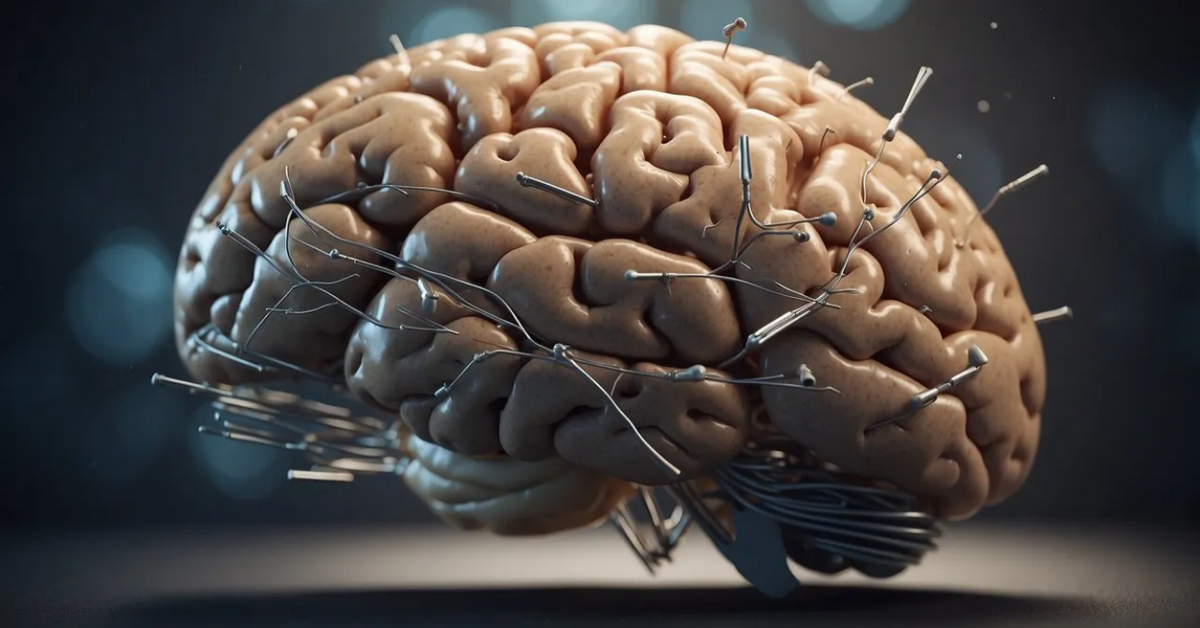We’ve all been there – a deadline looming on the horizon, yet we find ourselves scrolling through social media, watching videos, or doing any task other than the one we should be focusing on. Procrastination is a common enemy for many of us, but have you ever wondered what’s going on inside our brains that causes us to put off important tasks?
Unlocking the science behind procrastination may hold the key to overcoming this self-defeating habit. From a neurological standpoint, procrastination is a battle between two parts of our brain: the prefrontal cortex, responsible for decision-making and self-control, and the limbic system, which controls our pleasure and reward circuitry. The more we understand how these brain regions interact, the better equipped we’ll be to conquer the urge to delay.
In this article, we’ll delve into the factors that contribute to procrastination, as well as explore effective strategies to help us manage and overcome this common challenge. Armed with this knowledge, we can take control of our own productivity and harness our brain’s power to work in our favor.
Understanding Procrastination
The Science Behind Procrastination
Procrastination is a complex phenomenon that can be attributed to various psychological factors, such as fear, anxiety, and certain aspects of mental health. One of the primary factors behind procrastination is the battle between two key areas of the brain: the prefrontal cortex and the limbic system. Our prefrontal cortex, responsible for decision-making and planning, is often overruled by the limbic system, which seeks instant gratification. As a result, we often find ourselves putting off tasks that we know would be beneficial in the long run.
Mental health can also play a significant role in procrastination. For instance, chronic procrastinators often struggle with depression, ADHD, or OCD, which can impede their ability to tackle tasks in a timely manner. It is crucial to acknowledge and address these underlying issues to overcome procrastination effectively.
Types of Procrastinators
There are different types of procrastinators, each with unique habits and challenges. Recognizing the type of procrastinator we are can help us devise strategies to overcome our procrastination tendencies. Here are four common types of procrastinators:
- Dreamer: A dreamer is someone who fantasizes about their goals but struggles to take the necessary action to achieve them. By focusing on the end result rather than the process, the dreamer often gets overwhelmed by the scope of their task.
- Defier: Defiers tend to procrastinate as a way of resisting authority or control. They might delay tasks because they see them as impositions from an external source instead of recognizing the personal benefits associated with completing the work.
- Worrier: Worriers are dominated by anxiety and fear, which cause them to avoid tasks they perceive as difficult or stressful. They often over-analyze every decision, resulting in mental paralysis that prevents them from taking action.
- Crisis-Maker: Crisis-makers thrive under pressure and procrastinate intentionally to feel the adrenaline rush of completing tasks at the last minute. While they might be able to perform well in high-stakes situations, this behavior ultimately contributes to increased stress.
In summary, understanding the science behind procrastination and identifying the type of procrastinator we are can help us address our individual challenges effectively. By addressing the root causes and adopting tailored strategies, it becomes possible for us to overcome procrastination and successfully manage our tasks and goals.
Why We Procrastinate
Emotional and Psychological Factors
One of the primary reasons we procrastinate is due to emotional and psychological factors. For instance, when we are faced with tasks that seem difficult or overwhelming, feelings of stress and fear of failure can lead us to avoid starting. People with a perfectionist mindset may be especially prone to this, as they may worry about not being able to complete a task to their high standards.
In some cases, procrastination can also be linked to mental health issues, such as anxiety and depression, making it even more difficult to initiate tasks and maintain motivation. Additionally, the perceived boredom associated with a task can negatively affect our well-being and reduce our desire to engage with it.
Behavioral and Cognitive Aspects
Our behavioral tendencies and cognitive processes also contribute to procrastination. Some common behavioral and cognitive aspects at play are:
- Self-regulation failure: Managing our energy, focus, and time efficiently is key to avoiding procrastination. However, we often struggle with self-regulation, leading to issues such as impulsivity, distractions, and inability to prioritize tasks.
- Negative consequences: Sometimes we are motivated to do tasks to avoid negative consequences (e.g. loss of income, damaged relationships). However, if the negative consequences don’t seem imminent, we might be less inclined to tackle the task immediately.
- Indecision: The inability to make decisions can lead to a state of paralysis and contribute to procrastination. We might have difficulty focusing on tasks when we are overwhelmed by too many activities or aren’t clear about our priorities.
- Excuses: We tend to rationalize our procrastination by coming up with excuses, whether it be a lack of knowledge, resources or time. This allows us to shift blame away from ourselves, and avoid addressing the root of our procrastination.
Various factors contribute to the causes of procrastination, from emotional and psychological aspects to behavioral and cognitive influences. By understanding these factors, we can develop strategies to overcome challenges and work towards improving our well-being and productivity.
Impact of Procrastination
On Personal Health
Procrastination can have significant negative impacts on our personal health. One key aspect affected is our mental well-being, as procrastination has been linked to increased stress. When we delay tasks, the stress of unfinished work accumulates, leading to health issues such as anxiety and even depression. Alongside this, poor time management skills can result in sleep deprivation, as unfinished tasks force us to sacrifice sleep to meet deadlines.
Moreover, studies have shown a connection between conscientiousness and procrastination. Lower levels of conscientiousness have been associated with chronic procrastination, which in turn contributes to negative emotions and unhealthy coping mechanisms, further impairing our overall health.
On Academic and Professional Life
In the academic context, procrastination is particularly prevalent among college students. This academic procrastination can wreak havoc on their educational outcomes. Here are some of the most significant consequences:
- Lower performance: Delaying assignments and studying often results in lower grades, as the rushed nature of the work produces subpar results. Additionally, assignment deadlines may be missed, leading to further grade reductions or even course failures.
- Increased stress: Postponing tasks leads to a buildup of responsibilities, resulting in heightened stress levels as students struggle to catch up.
- Burnout: The constant stress and frantic catch-up work may lead to exhaustion and burnout, which further hampers academic progress.
In the professional world, procrastination has similar detrimental effects. The workplace often requires us to juggle multiple tasks and manage our time effectively, and procrastination can negatively impact our career trajectory. Some key negative impacts include:
- Reduced efficiency: Procrastinating on tasks ultimately leads to wasted time and decreased productivity, as we scramble to complete tasks at the last minute.
- Missed opportunities: Delaying tasks may cause us to miss crucial deadlines, resulting in lost opportunities for career advancement. Furthermore, persistently poor performance can damage our reputation and even lead to job loss.
- Lower income: A study by T. Koballa (2010) on workplace procrastination revealed a correlation between procrastination and lower income levels, indicating that habitual procrastinators may earn less than their peers who manage their time more effectively.
Therefore, procrastination can have harmful effects on both our personal health and academic or professional life. To combat these negative consequences, it is crucial for us to develop time management skills and work on fostering conscientiousness as we tackle tasks promptly and efficiently.
Overcoming Procrastination
Effective Time Management
Effective time management is crucial in overcoming procrastination. We need to create schedules that allocate specific time blocks for tasks and activities. This helps us gain control over our time and increases the likelihood of task completion. It’s essential to:
- Prioritize tasks based on urgency and importance.
- Break down complex tasks into smaller, manageable parts.
- Set realistic deadlines for task completion.
- Regularly review and adjust the schedule as needed.
It’s also important to set aside sufficient time for breaks and leisure activities. This will help maintain motivation and prevent burnout. Additionally, using a visual representation of our schedule can serve as a reminder of the tasks that need completion and the time allocated to them.
| Time | Task | Priority |
|---|---|---|
| 9-10 | Email review | High |
| 10-12 | Writing report | Medium |
| 12-1 | Lunch break | Low |
| 1-3 | Project work | High |
Cognitive Behavioral Strategies
Cognitive behavioral strategies are useful in addressing procrastination, as they focus on changing thought patterns and behaviors associated with putting things off. Here are some strategies that can help:
- Reframe negative thoughts: Replace unhelpful thoughts, such as I’ll never be able to do this, with more positive ones like I can do this if I break it down into manageable steps.
- Make decisions: Procrastination often stems from indecision. We must trust our decision-making abilities and commit to the tasks at hand.
- Reward ourselves: Acknowledge our accomplishments by rewarding ourselves with small treats or breaks after completing tasks, boosting motivation and overall satisfaction.
- Self-control: Discipline ourselves to stay focused and avoid distractions. Techniques like the Pomodoro Technique can be helpful, as it encourages us to work in focused intervals (e.g., 25 minutes of work, followed by a 5-minute break).
Implementing these strategies can improve time management and motivation, helping us overcome procrastination and complete our tasks more efficiently. Remember, it takes practice and consistency to develop new habits, so be patient and committed to this process.
In conclusion, understanding the science behind procrastination empowers us to address this common challenge effectively. By recognizing the interplay of psychological, behavioral, and cognitive factors, we can implement tailored strategies to overcome procrastination and enhance our productivity. Through effective time management, cognitive reframing, and self-discipline, we can break free from the grip of procrastination, achieve our goals, and lead more fulfilling lives. Remember, it’s not just about managing time; it’s about harnessing the power of our minds to work in our favor.

